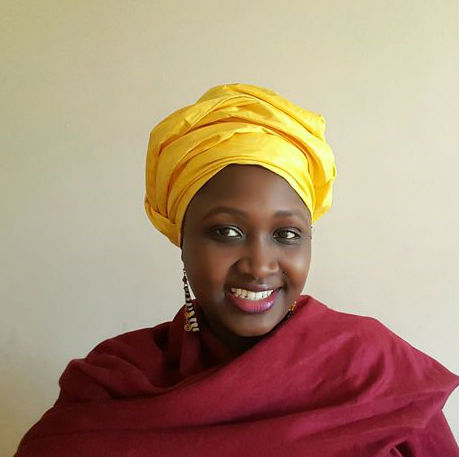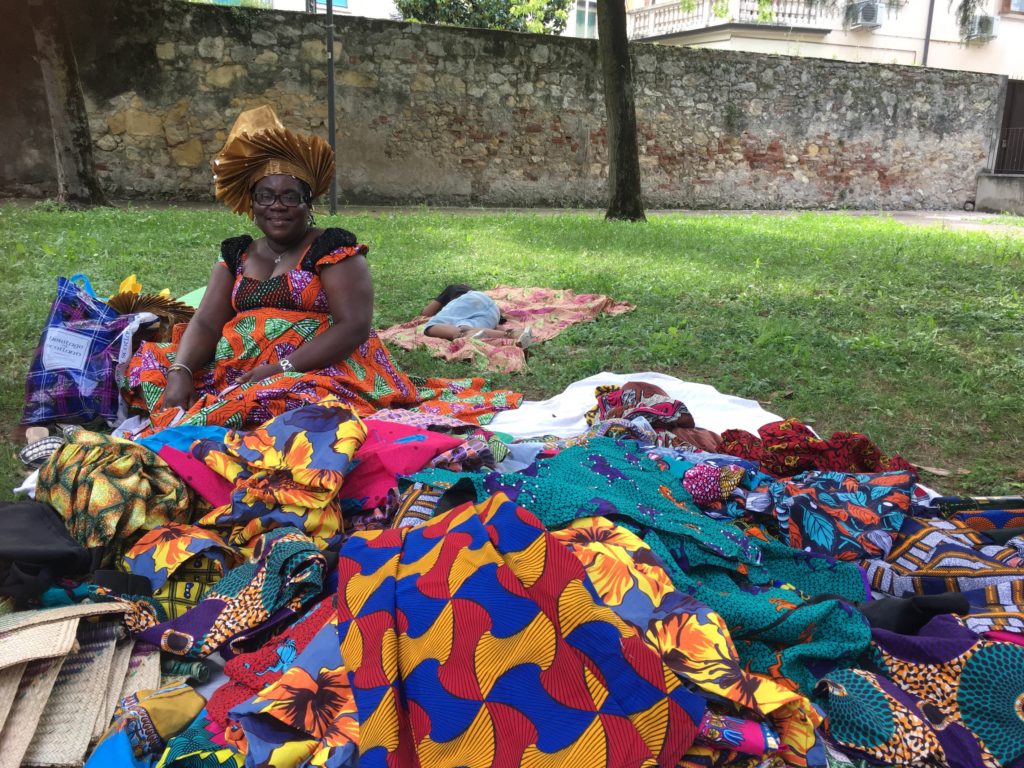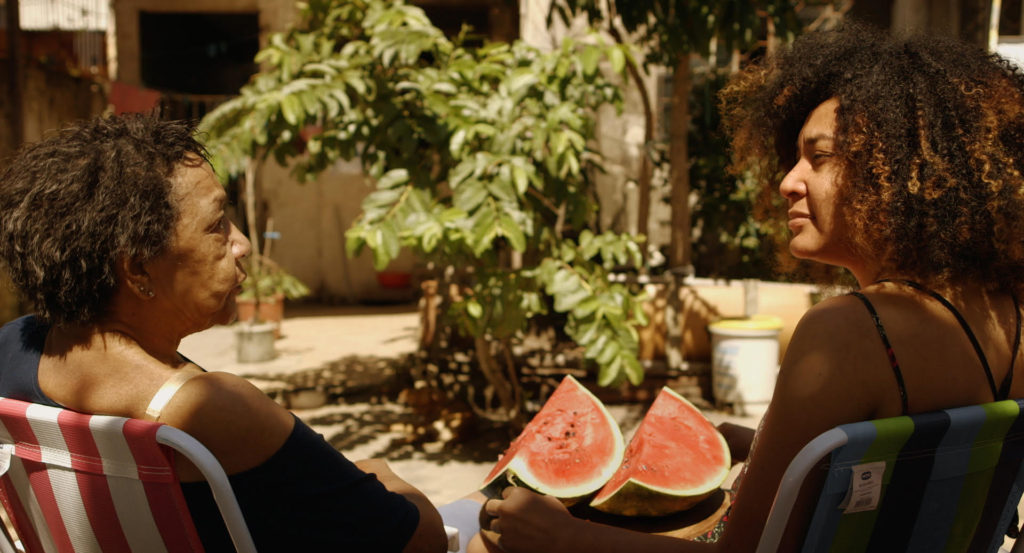During a full day of panel discussions, workshops, networking, and most importantly -building connections, women of colour came together to reflect and demand their space in Scotland’s media and influencing spheres.
by Juliana da Penha
“We are not a homogenous group; we are individuals with unique experiences,” said Talat Yaqoob, Founder of Pass The Mic, during the opening of the event on Saturday, June 15th, in Glasgow.
Women of colour from diverse ethnic backgrounds, nationalities, and expertise gathered for this second annual event, which connects nationwide women of colour to amplify their voices in the media. Talat, a feminist and anti-racist campaigner, media commentator, researcher, and co-founder of Women 50:50, emphasised that the most common words she heard women using to describe being in a place with other women of colour were “sisterhood and solidarity.” She also explained how and why she created Pass The Mic, a national program to tackle the underrepresentation and misrepresentation of women of colour in media and influencing spaces in Scotland.
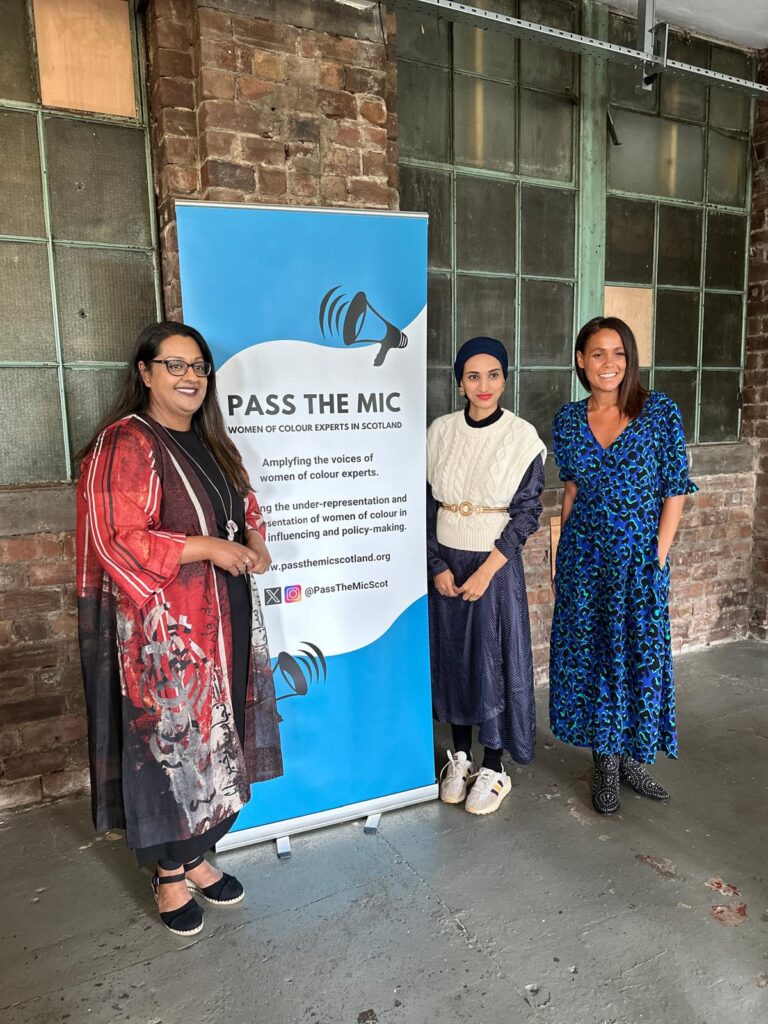
Pass The Mic hosts an expert directory with hundreds of women of colour from various areas, delivers an annual opinion writers group, conducts research to push for change, and organizes skills and solidarity events.
Talat explained that it all started from a place of “frustration and anger, tired of not seeing women of colour represented.” She was often called to speak on topics she was not an expert on, based on people’s assumptions—for example, to talk about her migration journey despite being born and raised in Scotland. This led her to create a spreadsheet on her computer with the names of women of colour experts in different areas, and she began to “Pass the Mic” to them. This initiative evolved into a website with a directory.
The Opinion Writers Programme, now in its fourth year, is an annual writing group that hosts up to 25 women of colour and partners them with national newspapers to publish their opinions and expertise. It is a paid opportunity for women of colour to share their insights and tackle the underrepresentation of women of colour in the media.
Pass The Mic has partnered with various publications over the years, and this year, it collaborated with The Herald, The National, The Press and Journal, The Scotsman, The Courier, Bella Caledonia, and Migrant Women Press. “That’s how we change things, by making ourselves more visible,” explained Talat.
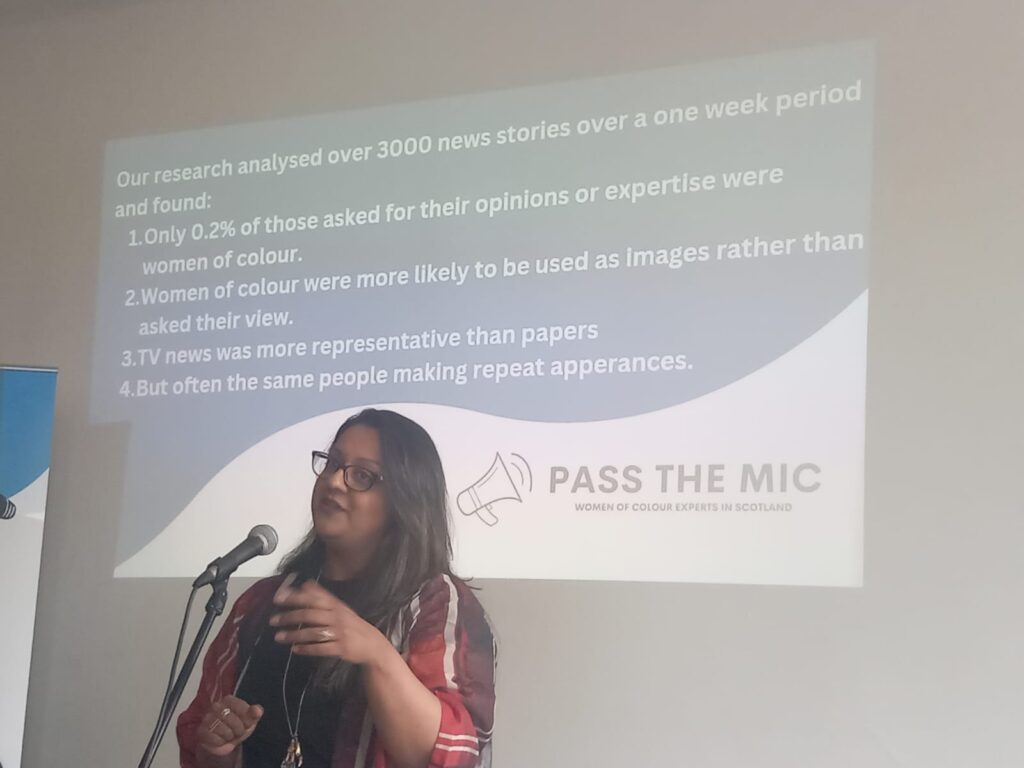
Another important initiative of Pass The Mic is media monitoring research on the representation of women of colour in Scottish news, a study by Karen Boyle and Melody House at the University of Strathclyde. This research, in partnership with Gender Equal Media Scotland—a coalition of academics, equality organizations, and journalists—aims to establish baseline information about the presence of women of colour in Scottish news media.
One of the key findings of this research highlights the significant lack of voices of women of colour in the news. After analyzing 3,121 stories across seven Scottish newspapers, Twitter accounts, websites, and three television shows during a one-week period from November 9-15, 2020, it was found that only 0.2% of those asked for opinions were women of colour.
A day of sharing, Connecting, learning, and driving change
Keynote speakers Fatma Manji, a journalist, broadcaster, writer, and Britain’s first hijab-wearing newsreader, and Jean Johansson, a TV presenter and broadcast journalist from Glasgow born in Kenya, shared their experiences and insightful reflections as women of colour in the mainstream media, answering questions of the audience giving some tips and advice.
Some discussions revolved around transforming diversity and inclusion rhetoric into anti-racism actions, emphasising the media’s need to move beyond tokenism and recognise women of colour for their skills, competencies, and experiences rather than treating them as mere checkboxes for diversity initiatives.
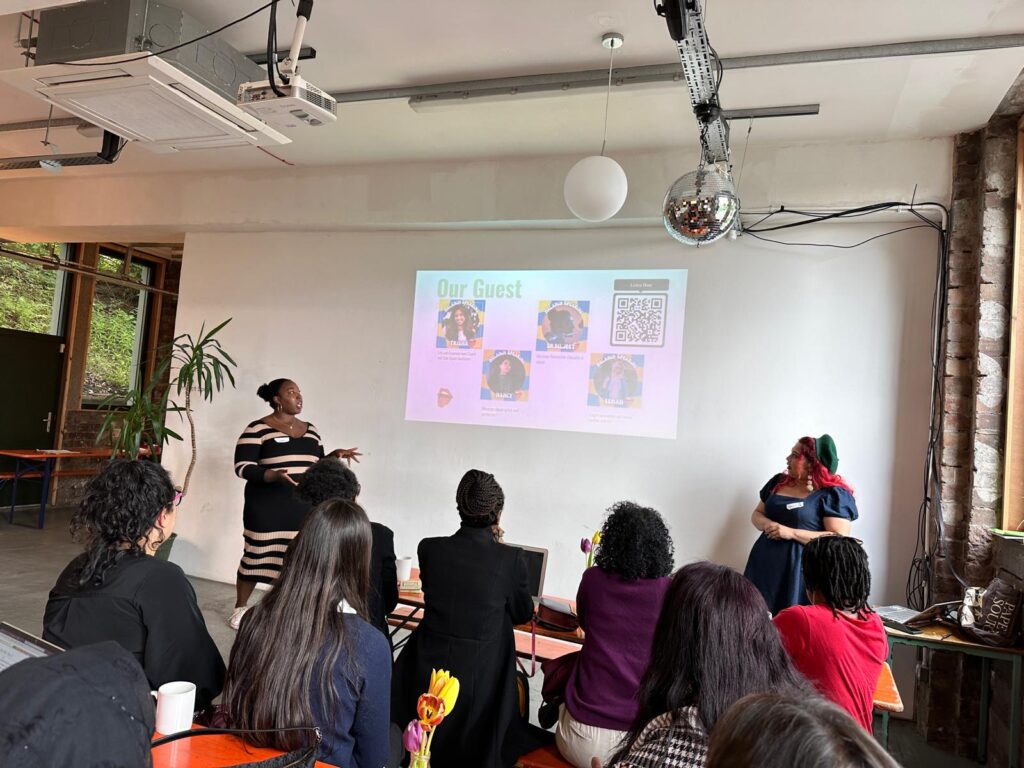
Jean Johanson mentioned that early interventions can help to ensure that women of colour have a rightful place in the media landscape, providing them with opportunities at the beginning of their careers.
Fatma Manji highlighted the crucial need for accountability for those not upholding equitable practices. “We need to name and shame”, she said. She also mentioned the importance of women using their skills and creating their own platforms.
Both emphasised the crucial need for unity and mutual support among women of colour. Fatma Manji noted, “We are not focusing on collective elevation but on claiming our individual piece of the pie. That’s why ‘Pass The Mic’ is so vital.”
Jean Johanson added, “Support each other, avoid tearing each other down. There’s enough work for all of us; we need not compete against each other.”
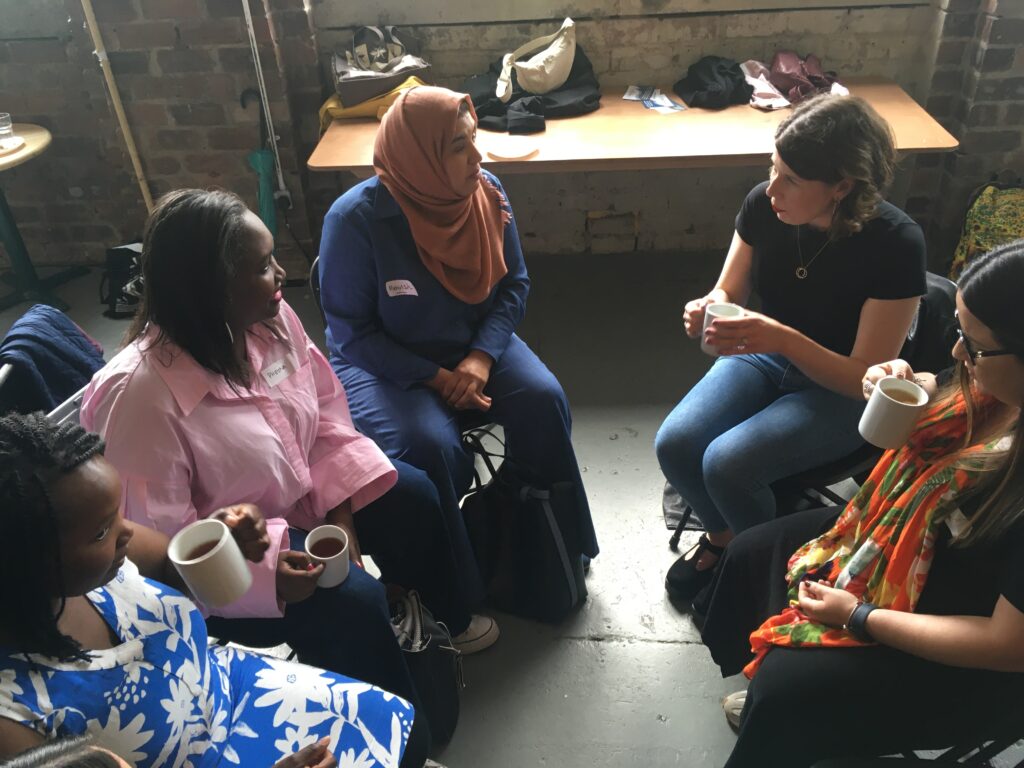
Throughout the day, women participated in various workshops; Ranecia Johnson and Natalia Uribe, founders of the Melanin Speaking Podcast, conducted a session on podcast production. News Editor Nichola Kane and Key Nicholson, a reporter from STV News, provided insights into TV interview skills. Freelance journalist Assa Sakamé-Roman shared expertise on article pitching, while Talat Yakob led a workshop on public speaking skills.
In the afternoon, a panel featuring a previous cohort of past Pass The Mic writers shared their experiences. To conclude the day, journalists from various fields and expertise participated in a speed networking session. The event concluded with cakes and mocktails.
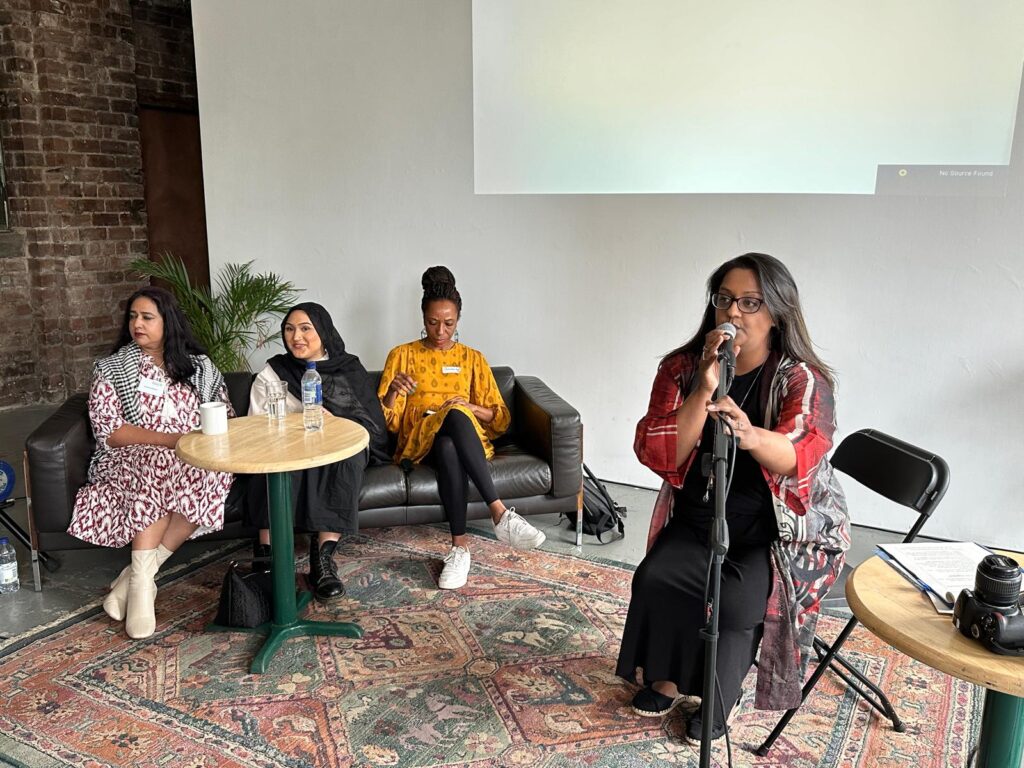
To conclude the day, Talat asked all women of colour in Scotland to ensure their names are included on the Pass The Mic expert list: “Don’t underestimate your expertise. All women of colour are experts: you have life experience, personal experience, and professional experience, and all that matters in the media and influence. You are an expert. Embrace it.”
Reflecting on her thoughts and feelings after the conclusion of the second edition of the Pass the Mic National Gathering of Women of Colour in Scotland, Talat shared,”I am exhausted from all the efforts to bring this together, but I feel inspired by the women present here. There’s a strong sense of sisterhood and immense gratitude.”

